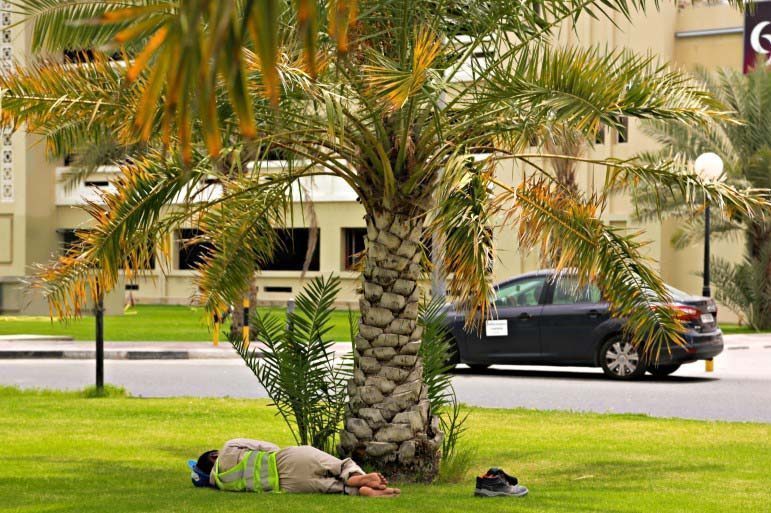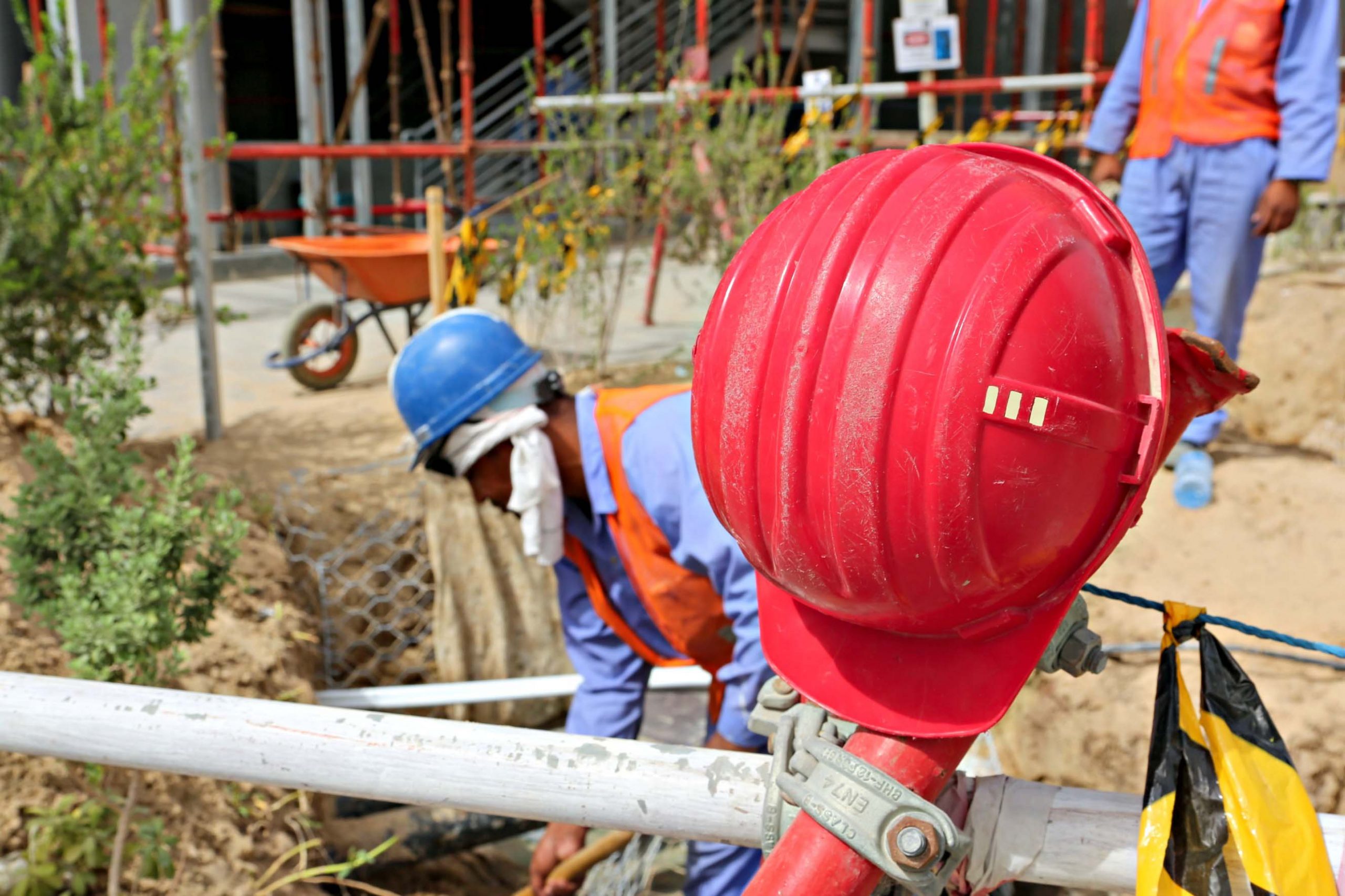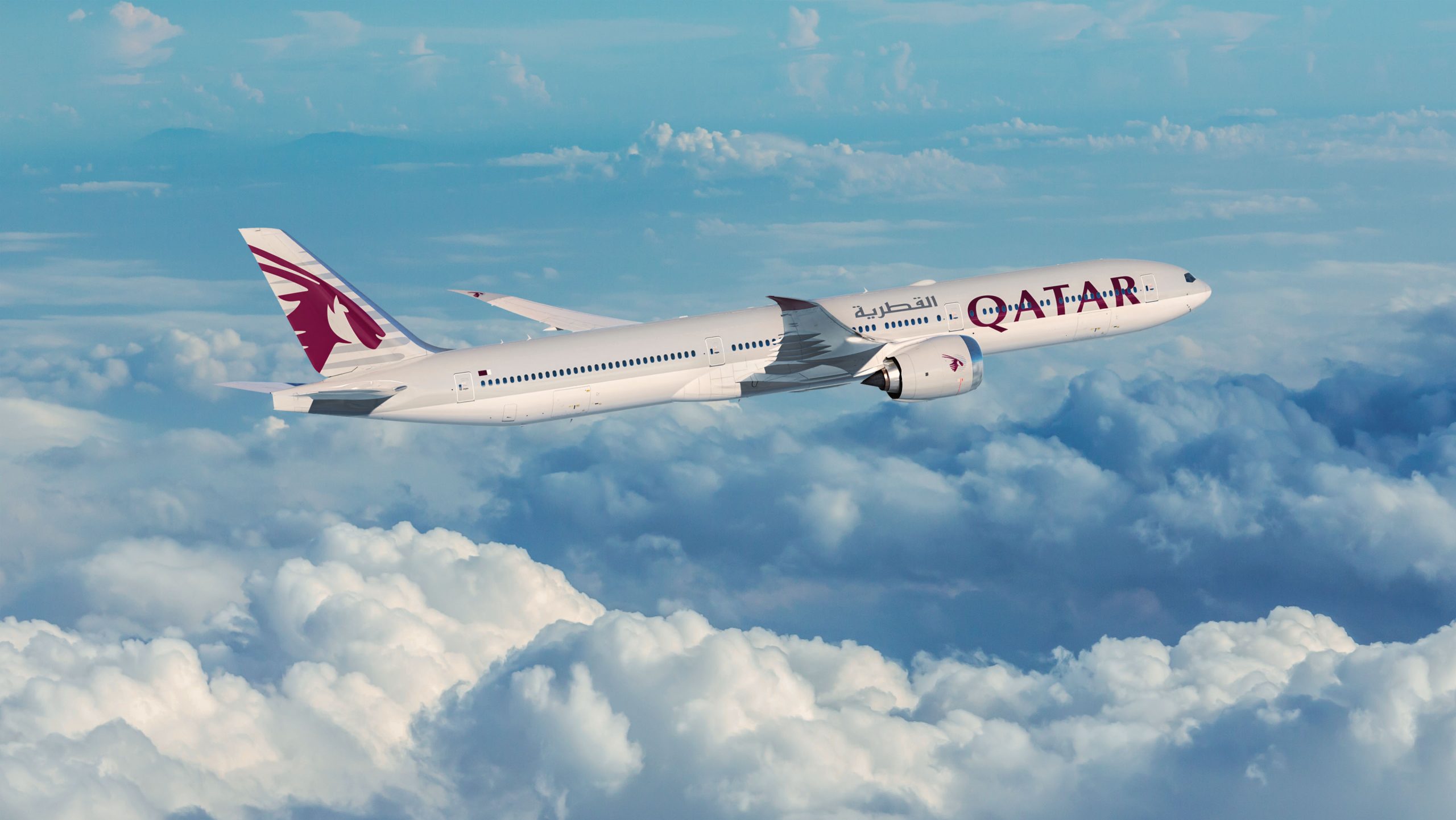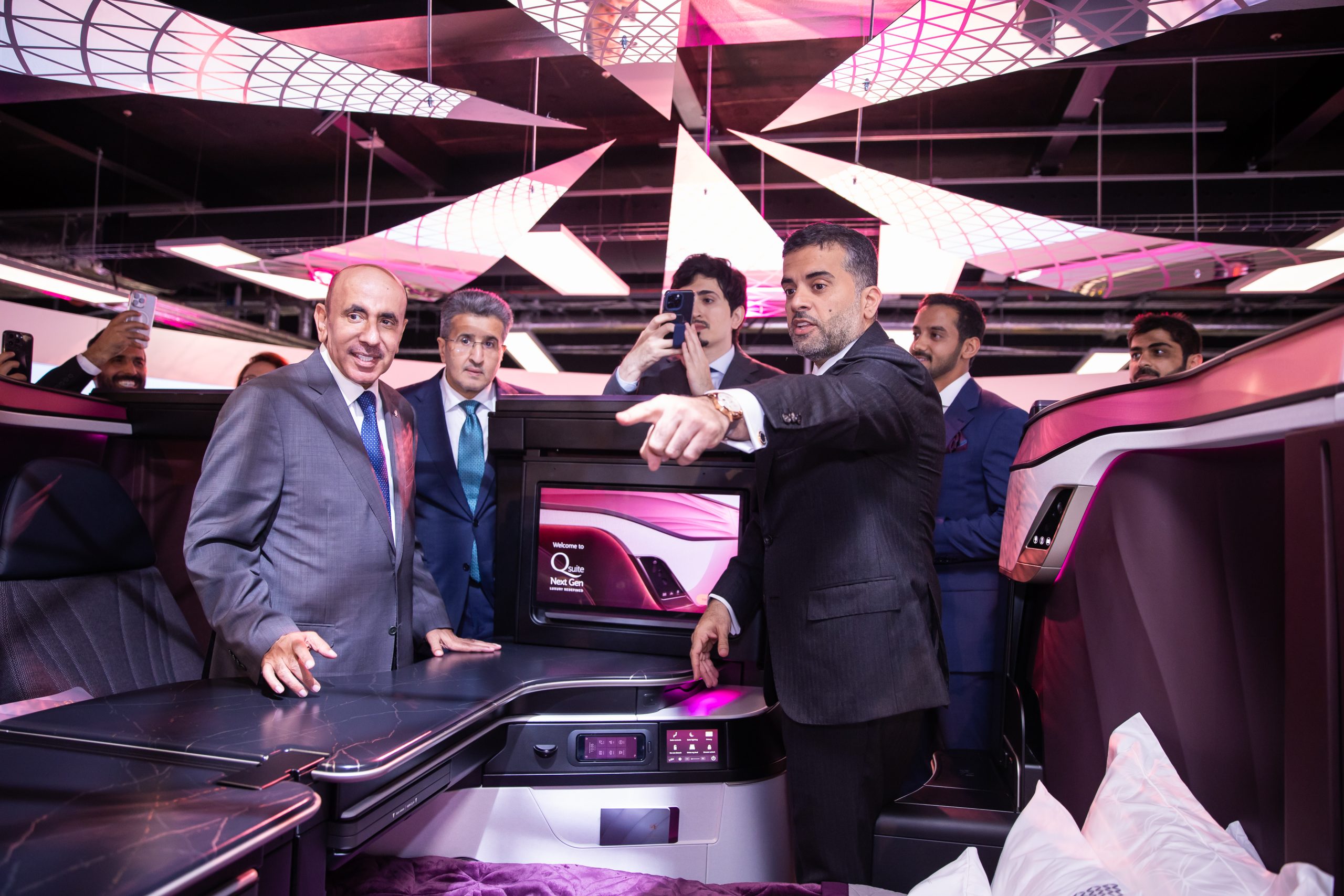
For Indian expat Salahuddin, the days of May have passed in a blur of heat, pressure and perspiration, as he works on pipework near the Thai embassy in Doha.
“We sit down when it gets hot, but the foreman comes and asks us why we aren’t doing our work,” the Mumbai-based worker told Doha News today. “It’s hot, but we have to do it. We cover our faces with cloths so that the sun doesn’t disfigure them.”
Salahuddin’s story is not unique. A significant chunk of Qatar’s population of 2.2 million is comprised of blue-collar workers – many of whom work outdoors on the country’s countless infrastructure projects. Hundreds of thousands more construction workers are slated to arrive before the 2022 World Cup.
As the thermometer rises during the beginning of Qatar’s long summer, these men appear to be bearing the brunt of the harsh weather conditions.
Though temperatures have already climbed past 40C, the country’s mandatory midday work ban does not come into effect for nearly another month. That means companies can use their discretion when deciding whether employees should work outside from 11:30am to 3pm.

The midday work ban was instituted in 2007, and runs from June 15 to August 31. It mandates that no laborer log more than five hours of outdoor work in the mornings.
This month, however, some companies have sought to limit heat-related illnesses by implementing summer working hours early.
According to a site supervisor at Cybarco, one of many construction companies working on projects in West Bay, workers on their projects in Al Shahaniya are allowed to stay indoors during peak hours.
However, the company’s employees onsite in West Bay are still required to work from 6am to 5pm daily, aside from a one-hour lunch break. Still, they are given several five to 10 minute breaks during the day, the supervisor told Doha News.
Staying functional
To combat the heat and stay hydrated and energized throughout the day, some workers at Cybarco said they consume glucose-infused water. The glucose, according to construction worker Somanna Pojari, is provided by the company in tin cans at their accommodation, and then mixed into water bottles.
However, Salahhudin said he and his colleagues at the Hyundai Engineering and Construction has not yet started providing them with glucose. “They should start by the 31st,” he said.
Other companies, like Construction Development Company, which oversees major projects at St. Regis, Kempinski Residence and Suites, and the Pearl Qatar, are opting to wait until June to provide the midday break.
When reached by phone last week, company representative Sylvia Sabbagh told Doha News: “We follow the labor laws. When the notification comes in the newspapers, we change our policy.”
Workers at a Hamad Hospital project site overseen by Woodland Trade and General Construction Company are also currently required to work during peak hours. Aside from a 20-minute break at 9am, an hour-long break at noon, and a 15-minute break at 3pm, they work non-stop during their 11-hour day, said Nepalese worker Dipan Hasda.
Like many others working outdoors who spoke to Doha News over the past few days, Hasda did not question working in the heat. He said the weather was simply “part of the job.”

Hasda and many of his colleagues spend their lunch break resting under the shade of the trees on the roundabout in front of the Hamad Hospital parking lot. These construction workers said they also consume copious amounts of glucose-infused water, provided on-site by their firm.
Meanwhile, other companies have even more stringent policies.
The friend of a construction staffer at Midmac Co. told Doha News last week that the company had banned coffee and water breaks for all laborers working on the new worker’s hospital project.
A memo was posted on one of the walls at the site, outlining the current policy.
The friend, who wished to remain anonymous, said that the worker was photographed violating the rules and reported to the manager. She told Doha News:
“The manager explained to them that drinking water and hot beverages are time-consuming during construction, but workers, including my (friend) who works from 6am till 5pm, need water and coffee to be able to continue working in this heat.
We know our rights and the proper way to treat workers, and this isn’t right.”
When asked about the policy, Assem Abu Ayyash, the project director at Midmac Co. denied the claim, saying “this the most ridiculous and abnormal thing to hear.”
However, another official at the company said that only managers and supervisors, not workers, were allowed water and beverages during work hours.
The larger picture
Qatar has been in the international spotlight for months over the dismal working and living conditions of its blue-collar employees.
Last July, 32 Nepalese workers died, a record number for this mostly working class segment of Qatar’s population.
Speaking to Doha News at the time, Second Secretary Harihar Kant Poudel, attributed the deaths of the laborers, most of whom were in their 20s, to harsh working conditions. He said:
“Many workers are going without meals, and without enough water, (and are) working in high temperatures all day. The weather here is different from our country. Our nationals are not used to it.”
Several human rights groups, including Amnesty International, have urged Qatar to radically change its labor law policies. However, neighboring countries follow similar summer bans, that do not take May’s heat into account.
Medical matters
For now, the heat doesn’t seem to have sent any outdoor workers in search of medical care. At Hamad Hospital last week, a nurse who asked to remain anonymous told Doha News that they have not begun seeing many cases of heat stroke or heat exhaustion yet.
She added that there has been a marked decrease in the number of heat-related incidents over the last five years, and attributed the change to the implementation of reduced working hours during peak summer months.
However, 95 percent of patients who report to Hamad’s Accident Emergency department are male laborers brought in for work-related incidents.
Another source at the Accident Emergency ward commented on treatment procedures for heat exhaustion and stroke, saying:
“For heat exhaustion, whose effects include generalized weakness, electrolyte imbalance, and muscle twitches, we hospitalize workers for 2-3 hours, give them fluids and hydrate them before discharging them with a medical leave of absence note.”
“For heat strokes, the procedure is much more serious. Patients are admitted to the ICU, where they are cooled down by machines and intubated. Unfortunately, this has a high fatality rate.”
As temperatures across the country continue to soar, whether more companies take precautionary measures remains to be seen.
Thoughts?







